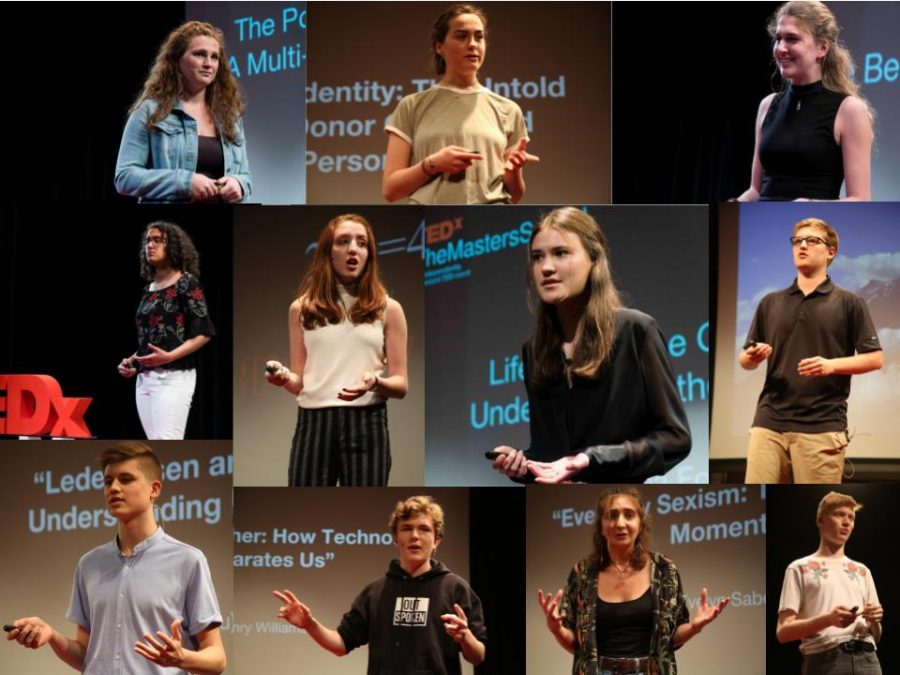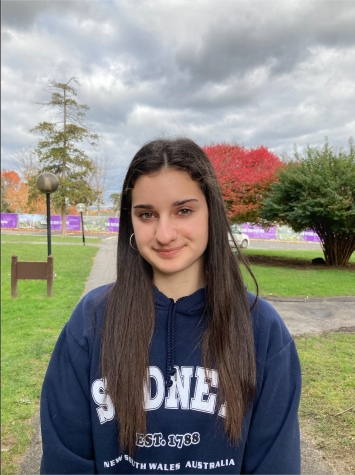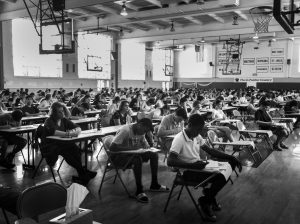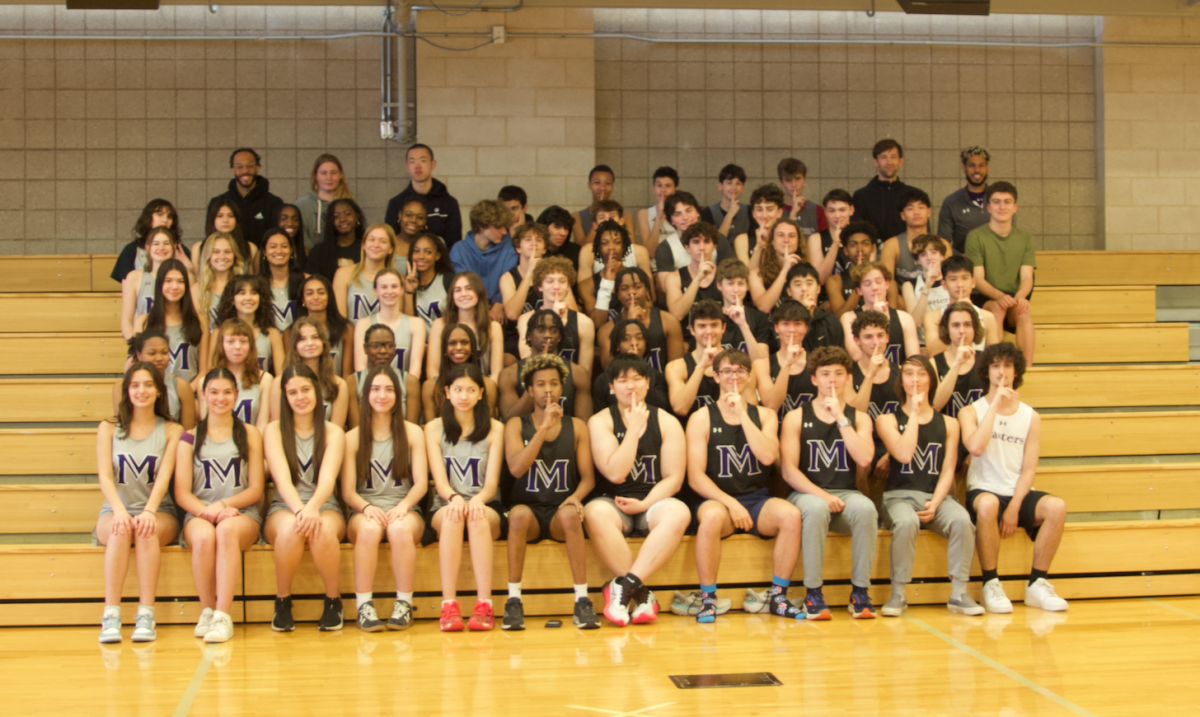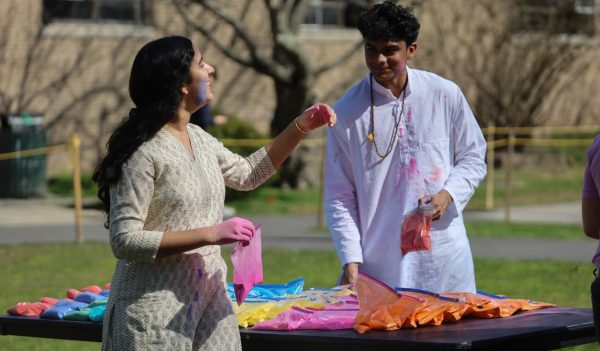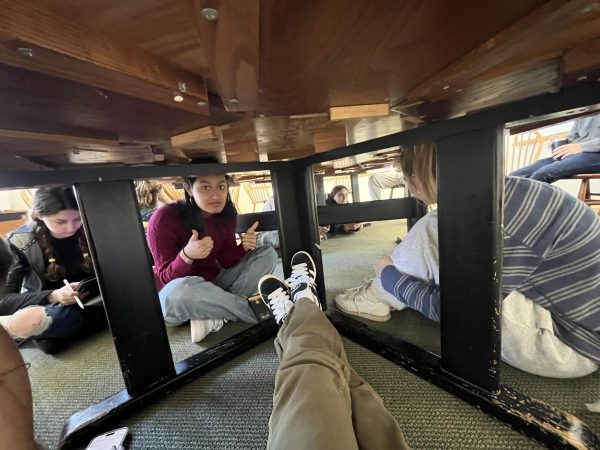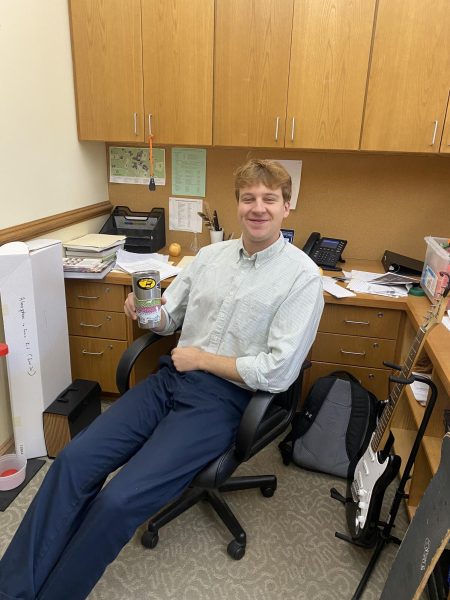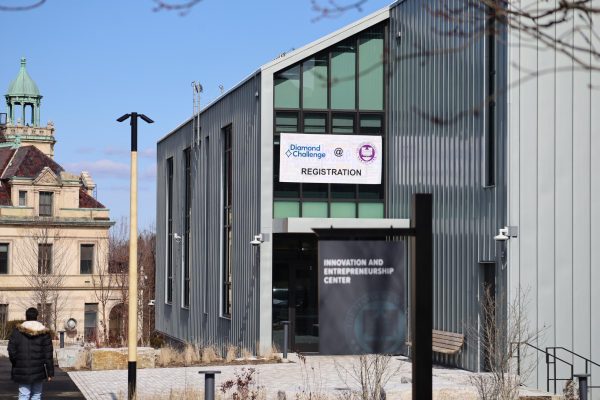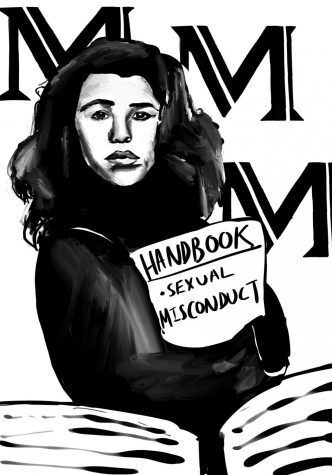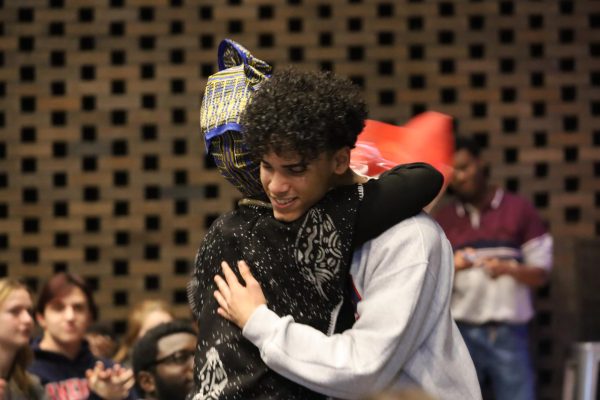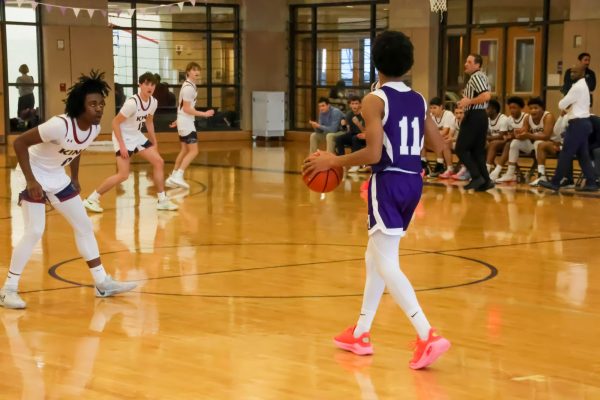Possibility of spring TEDx event remains uncertain
Past photos of TEDx Student Speakers who performed live in front of the Masters Community over the last five years .
March 8, 2021
Standing anxiously on stage, adjusting the microphone with sweaty palms, and waiting for the cue to begin speaking: this is the experience that many students have in the final moments before they begin their TEDx talk.
With its inaugural performance in 2017, Masters’ TEDx (x representing an independently organized TED event) program allows students to develop their public speaking skills while educating others on an important topic of their choice. Upper School history teachers Brendon Barrios and Lisa Berrol are the advisors of the program and select around twelve students annually to deliver presentations.
The TEDx application process is lengthy, involving a formal application submitted in December and an interview that follows shortly after. Just over forty applications were submitted last year alone, a record high for the event. In 2020, the program, which is offered as a co-curricular, welcomed fourteen new speakers that were eager to begin researching and writing their ten-minute speeches.
Similar to past years, students wrote, rehearsed and practiced their speeches every Wednesday night from 4:30 until 6:00 p.m. However, because Masters transferred to remote learning after spring break, students were only able to make it half of the way to their performance date before the event was officially postponed.
Barrios said, “Because the pandemic was just beginning, a lot of students’ mental capacities really affected their ability to focus on this and we were really reluctant to make students do this much work without knowing if an actual performance could take place.”
Participants largely agreed with this course of action and voted to stop working on their speeches weeks after the spring break. As such, they decided to push any potential performance to the spring of 2021.
Junior Clara Kolker, who was slated to speak about the influence that finding information through social media platforms has on cognition, concluded that this was the right decision because of the adjustments that students had to make at the beginning of the pandemic.
Kolker said, “I definitely wasn’t happy about stopping, but I think that all things considered, it was really for the best.”
Because of the virtual start to the 2020-2021 school year and the difficulty in anticipating the future, Barrios and Berrol have not fully decided on what the future holds for TEDx. However, the yearly TEDx license that the advisors were granted last spring is still usable until April of 2021, so permission for the event has already been granted.
Since they do not have to reapply for this license, Barrios and Berrol said they are committed to finding a way for the community to experience the event in the spring, should the students selected last year choose to resume writing and rehearsing their topics of choice. Because there is limited time left in the school year and the cohort of students selected last year have already written about half of their speeches, the advisors are hoping that these students can present their topics.
Although this approach of letting students pick up from where they left off last year may appear as if it would function seamlessly, many of those in the cohort feel that resuming their speech may not be more difficult than anticipated. Due to the pandemic and the lessons that many have taken away from their unique experiences, some think pursuing their topic may even be impossible.
Senior Zach Battleman had planned to speak about the importance of risk-taking, especially as it relates to academics; but now does not think he will be able to continue with the topic.
Battleman said, “In the context of Covid, my previous point of risk-taking could be taken the wrong way because people could just think ‘Why don’t I just go outside without a mask?’ and that was not my message.”
Additionally, senior Lily Wike felt that her original speech, about the impact that technology has on the development teen brains, would need a serious revision in order for students to connect with it.
Wike said, “I think that I might have to add how the pandemic has increased our reliance on technology, but without that, I’m worried that my topic might just be irrelevant right now.”
Even with this apprehension, it seems promising that the event will take place at some point this spring, as Masters now offers in-person instruction, so the event could be held in the Experimental Theater with a camera crew as planned. Additionally, the size of the event and group of students eligible to give speeches has decreased since three seniors graduated last spring.
Barrios said, “We absolutely have not given up on the possibility of a spring performance but we need to make sure that it is a realistic idea to pursue.”




